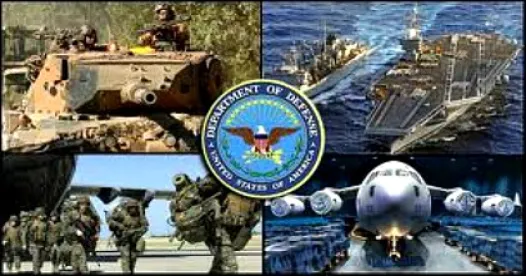As highlighted in a recent lawsuit, aerospace and defense contractors can face various antitrust risks when using certain tactics to prevent other companies from hiring their employees. See Hunter v. Booz Allen Hamilton Holding Corp., No. 2:19-CV-411 (S.D. Ohio). The plaintiff, a former intelligence professional who worked at the US government’s Joint Intelligence Operations Center Europe Analytic Center in Molesworth, England (JAC Molesworth), filed an antitrust suit on behalf of herself and a class of JAC Molesworth employees. She alleges that three military intelligence contractors—Booz Allen, CACI and Mission Essential—entered into illegal agreements not to hire one another’s employees. The complaint alleges that the three contractors each had Indefinite Delivery / Indefinite Quantity (IDIQ) contracts and, prior to the alleged “no-poach” agreement, competed aggressively to hire employees with experience at JAC Molesworth to provide services under contract task orders. According to the complaint, these alleged no-poach agreements had the effect of suppressing the wages and benefits for skilled workers at JAC Molesworth because they stopped a bidding war for talent.
No-Poach, No-Solicit and Other Employment Restrictions Under Antitrust Scrutiny
The no-poach agreements alleged in Hunter v. Booz Allen are part of a larger trend in which antitrust enforcers are paying closer attention to practices that hinder competition in employment markets. In October 2016, the US Department of Justice and Federal Trade Commission issued a joint publication, Antitrust Guidance for Human Resources Professionals. This guidance offers a few key takeaways to avoid antitrust trouble.
-
The most important takeaway is that employers are strictly prohibited from entering into “naked” wage-fixing, no-solicit or no-poach agreements. Naked agreements are agreements that are “separate from or not reasonably necessary to a larger collaboration between the employers.” Such naked agreements are considered “per se illegal” under the antitrust laws—they are deemed illegal without any inquiry into their competitive effects. Antitrust Guidance at 3.
-
The Department of Justice explicitly warns that it may criminally prosecute employers who enter into naked agreements that diminish competition for talent. at 2.
-
There is a flip side: Legitimate, agreements that are not naked arrangements but instead arise from a larger collaboration between companies will be judged under the rule of reason and are not per se. Examples could be if a company provides a competing employer with access to its employees because the firms are working together to develop a new technology, or in connection with an M&A transaction.
The DOJ has been very active in investigating and challenging no-poach and similar agreements in recent years. It has brought and settled civil cases involving agreements in various industries, ranging from high-tech workers in Silicon Valley to railcar production. DOJ leadership has stressed that pursuing these kinds of matters is a priority, and it has many civil and potentially criminal investigations in various industries. There are also many class actions proceeding with claims involving alleged no-poach agreements.
Considerations for Aerospace and Defense Contractors
The Hunter v. Booz Allen litigation shows that the aerospace and defense industry can be a target for employment-related antitrust claims. Several factors could put contractors in the antitrust crosshairs. For example:
-
As in the Hunter litigation, contractors may have competing IDIQ contracts at domestic or foreign locations with a relatively limited local talent pool.
-
Contractors often locate their facilities near the customers they serve, leading to a concentration of employers and talent in a relatively small geography. There is a concentration of defense IT and intelligence contractors and employees in the Washington, DC metropolitan area that shares some features with the high-tech employers and workforce that led to DOJ and civil cases in Silicon Valley.
-
The aerospace and defense labor market is relatively tight for various reasons. For example, the demand for employees with security clearances may be higher than the number of cleared individuals. Overall, there appears to be a high need for STEM workers, with demand potentially outstripping supply.
There are several precautions that aerospace and defense contractors can take to manage their exposure to this risk.
-
Aerospace and defense contractors should ensure that human resources professionals within their organizations are educated and informed about the unlawful nature of naked no-poach agreements with competitors.
-
Employment restrictions arising in connection with legitimate business arrangements between contractors should be evaluated under the rule of reason and likely will be lawful. However, care should be taken to make sure the restrictions are carefully crafted and limited so the restraint aligns with the legitimate needs. Even if there is a valid reason for some restriction, if it is crafted too broadly it will be more difficult to defend under the rule of reason, or could potentially even be viewed as a per se illegal naked restraint.
-
For example, two employers that are working closely on a project together may determine that they can legitimately agree not to poach each other’s key employees who are working on that project. While this agreement is unlikely to be considered per se illegal, the employers face greater risk if they draw their agreement not around the employees working on the project but cover all of their employees, including many working in other areas of their businesses unrelated to the project at issue. Likewise, risks would increase if the agreement persists long after the project ends.
-
-
Counsel should be consulted before entering into any agreements, written or otherwise, related to no-poach, no-solicit, no-hire or other restrictions between employers.




 />i
/>i
